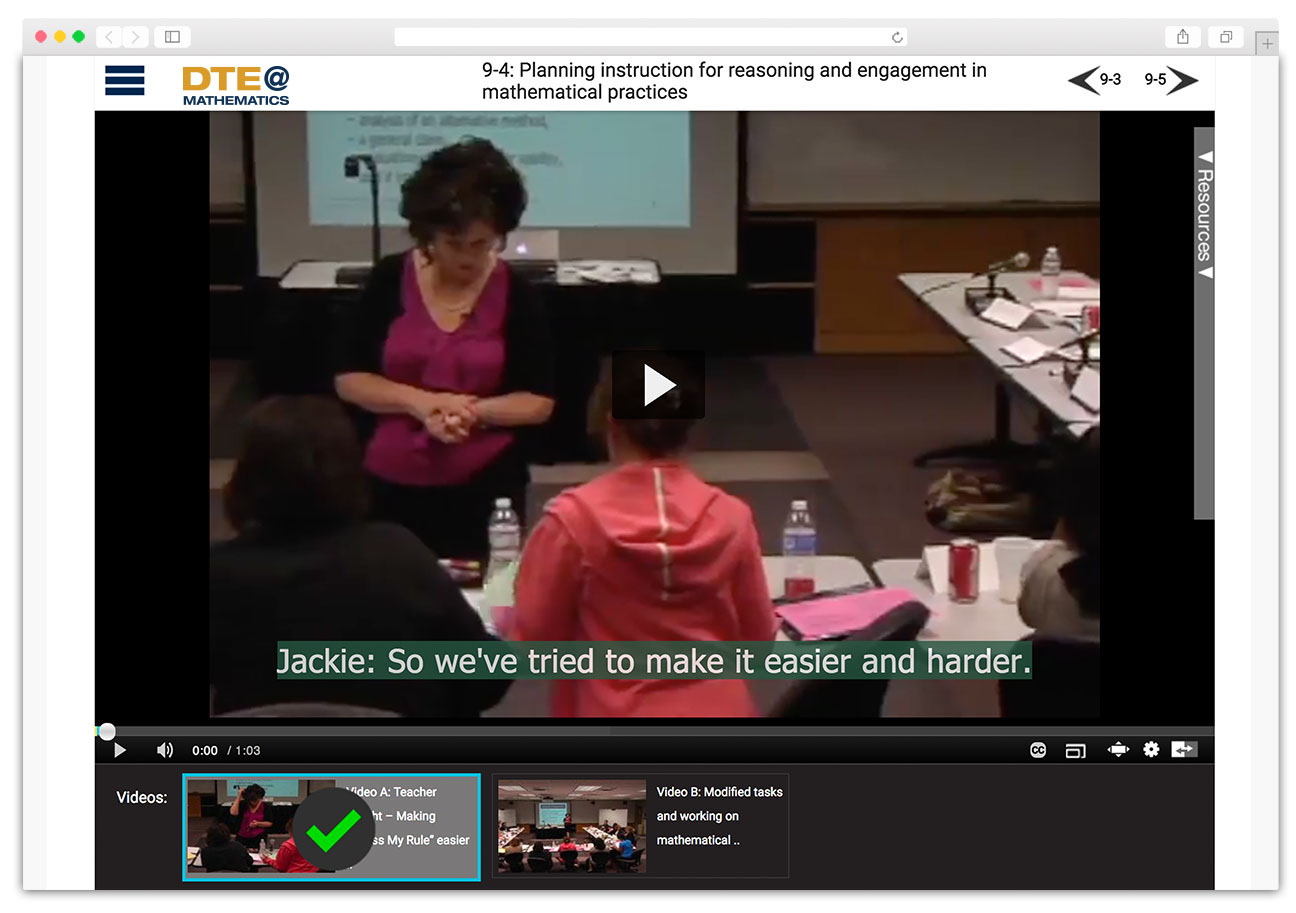Reasoning-and-explanation - Session 9: Planning instruction to target reasoning and engagement in mathematical practices
Part 4: Planning instruction for reasoning and engagement in mathematical practices
Overview
This part extends previous work on maintaining and extending opportunities for students to reason. Specifically scaling mathematics tasks is reconsidered through specific approaches that can have very practical and meaningful impact on preparing for instruction in ways that enhance students’ opportunities to reason and engage in mathematical practices. In this part, tasks commonly found in curriculum materials are used to explore different modification strategies that can enhance opportunities to engage in mathematical reasoning.
Key Points
Approaches to modifying tasks include:
- Changing the constraints of a story problem so that the problem has more than one possible answer
- Changing the problem to work backwards (i.e., give a solution and ask students to write expressions to equal a specific answer)
- Changing the problem to involve more than one step
- Asking students to write story problems to go with particular calculations
- Changing specific cases to requests to generalize across cases or beyond the range of the initial problem by using phrases like “find all ___ that ___”
- Rephrasing closed problems as ones that encourage conjectures by using phrases like “What happens if…”
- Changing problems from find solutions and generate justifications to involve analysis of an alternative method, a general claim, evaluation of correctness or validity, and if incorrect, error analysis
Being skilled in modifying tasks to enhance reasoning opportunities sets the stage for another important teaching practice. Teachers need to be skilled in using tasks that have rich reasoning opportunities to make mathematics that is often implicit more explicit, such as mathematical practices. Teachers who are able to be explicit about mathematical practices make their teaching more equitable by calling attention to the practices for all to learn.
